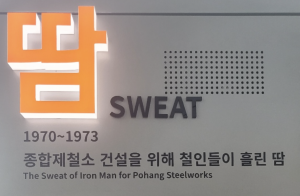Pohang: POSCO Museum
Photo essay of wall text of POSCO Museum of Pohang

Photo essay of wall text of POSCO Museum of Pohang

XXX

According to Google, this article has been cited by 370 other papters since its 2006 publication. Moreover, any article discussing Farmer, Partners in Health, or any of the other authors alludes to this and several other reports.
seeing that dump trucks and more are being transferred the newark as a dumping ground. This causes a lot ofharmful chemicals to appear.
This article seems to focus more on the overarching theme of global medicine. This does include aspects of emergency response (such as discussing how various agencies respond to emergencies or how they formulate protocols) as biosecurity seeks to minimize or eradicate health emergencies. However, as the article contends, biosecurity is not a functional ideal at this time; it primarily contends that our current models of biosecurity are undermined by several factors, leaving them as simply emergency responses.
This article seems to be primarily cited by other articles concerning historical disasters. It appears, for the most part, to be very under-cited by the research community. This may be due to its nature as a primarily historical analysis of a very under represented issue. Many competing articles seem to focus on more substantial issues with direct effects on communities or directly point out failures that led to significant reduction in response capability. As argued in the article, it can be very difficult to press issues without public encouragement for the topic.
1) Jean-Pierre Chevenement: a key player in passing this immigration legislation, the leader has since stepped away from the political scene after running for the presidency in 2002. As the sitting minister, Mr. Chevenement has been described as a key member of the left; I'd be intrigued to see what other pieces of legislation he has worked on
2) Didier Fassin: Dr. Fassin, a reigning expert in french state anthropology, appears to bring an element of medical background to his analysis. Obviously, he seems to be a well-respected member of the anthropological community-- where and what other projects he has on-going would be interesting
3) French healthcare: this type of legislation obviously puts a tremendous amount of strain on the general healthcare; depending on the system utilized by the French state, this could have a detrimental effect on the quality and timing of care delivered.
While emergency response is not addressed as an overarching theme, this report focuses on the nuances of mental health within emergency response. A key, but often forgotten aspect of emergency response, the report seeks to better focus the treatment and study of mental health after an emergency. The report discusses how to better study mental illness in populations who have experienced trauma, which will further enable effective treatments. It also discusses a few interventions currently shown to help mitigate PTSD, MDD, and other disorders after a disaster event.
While there are clips of various spokesmen and women for the marine corps, I would have liked to see an interview with them directly. Particularly, a female appears several times to directly meet with the survivors of Camp Lejeune and to speak at the senate hearing (she's not listed on any outside resources). She serves as the "Marine Corps Representative", and appears to be reserved at best. Her view on the former residents and the situation would be intriguing.